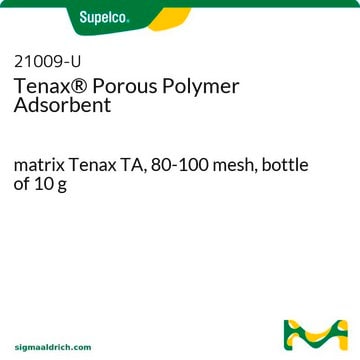W236209
Decanal
FCC, FG
Synonym(s):
Caprinaldehyde, Decyl aldehyde
About This Item
Fragrance grade
Halal
Kosher
meets purity specifications of JECFA
Recommended Products
biological source
synthetic
Quality Level
grade
FG
Fragrance grade
Halal
Kosher
Agency
follows IFRA guidelines
meets purity specifications of JECFA
reg. compliance
EU Regulation 1223/2009
EU Regulation 1334/2008 & 178/2002
FCC
FDA 21 CFR 117
vapor density
>1 (vs air)
vapor pressure
~0.15 mmHg ( 20 °C)
Assay
95%
form
liquid
refractive index
n20/D 1.428 (lit.)
bp
207-209 °C (lit.)
density
0.83 g/mL at 20 °C
0.83 g/mL at 25 °C (lit.)
application(s)
flavors and fragrances
Documentation
see Safety & Documentation for available documents
food allergen
no known allergens
fragrance allergen
no known allergens
Organoleptic
orange; citrus; waxy; floral; sweet
SMILES string
[H]C(=O)CCCCCCCCC
InChI
1S/C10H20O/c1-2-3-4-5-6-7-8-9-10-11/h10H,2-9H2,1H3
InChI key
KSMVZQYAVGTKIV-UHFFFAOYSA-N
Looking for similar products? Visit Product Comparison Guide
Application
- The enhancement of flowery-like aroma in green tea under optimized processing conditions by sensory-directed flavor analysis.: This study explores the enhancement of the flowery-like aroma in green tea through optimized processing, utilizing sensory-directed flavor analysis. Decanal is identified as a key aroma component contributing to this desirable characteristic (Wang Y et al., 2024).
- (14)C-Isotope Use to Quantify Covalent Reactions between Flavor Compounds and β-Lactoglobulin.: This paper quantifies covalent reactions between flavor compounds, such as decanal, and β-lactoglobulin using (14)C-isotope labeling, providing insights into flavor stability and interaction in food matrices (Shepelev I et al., 2024)
Signal Word
Warning
Hazard Statements
Precautionary Statements
Hazard Classifications
Aquatic Chronic 3 - Eye Irrit. 2
Storage Class Code
10 - Combustible liquids
WGK
WGK 2
Flash Point(F)
181.4 °F - closed cup
Flash Point(C)
83 °C - closed cup
Personal Protective Equipment
Choose from one of the most recent versions:
Already Own This Product?
Find documentation for the products that you have recently purchased in the Document Library.
Customers Also Viewed
Protocols
Fast GC analysis of sweet orange essential oil in hexane. Key components identified includes: β-Farnesene; α-Huµlene; Germacrene D; (+)-Valencene; Bicyclogermacrene; (+)-δ-Cadinene
Our team of scientists has experience in all areas of research including Life Science, Material Science, Chemical Synthesis, Chromatography, Analytical and many others.
Contact Technical Service














